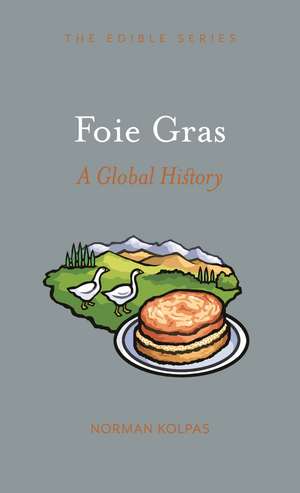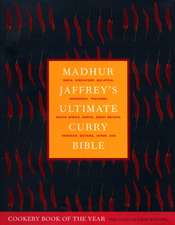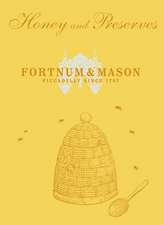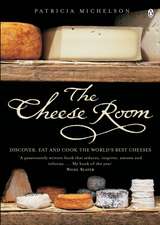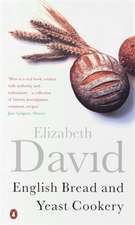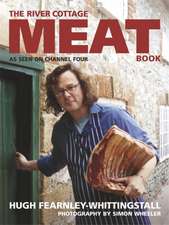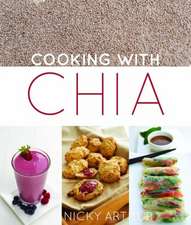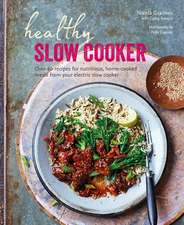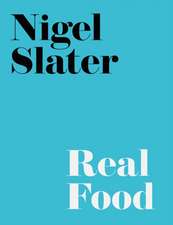Foie Gras: A Global History: Edible
Autor Norman Kolpasen Limba Engleză Hardback – 9 apr 2021
Din seria Edible
-
 Preț: 82.54 lei
Preț: 82.54 lei -
 Preț: 83.44 lei
Preț: 83.44 lei -
 Preț: 83.07 lei
Preț: 83.07 lei -
 Preț: 83.38 lei
Preț: 83.38 lei -
 Preț: 82.18 lei
Preț: 82.18 lei -
 Preț: 145.76 lei
Preț: 145.76 lei -
 Preț: 83.70 lei
Preț: 83.70 lei -
 Preț: 83.38 lei
Preț: 83.38 lei -
 Preț: 83.84 lei
Preț: 83.84 lei -
 Preț: 83.07 lei
Preț: 83.07 lei -
 Preț: 82.64 lei
Preț: 82.64 lei -
 Preț: 82.64 lei
Preț: 82.64 lei -
 Preț: 82.54 lei
Preț: 82.54 lei -
 Preț: 83.07 lei
Preț: 83.07 lei -
 Preț: 83.44 lei
Preț: 83.44 lei -
 Preț: 82.54 lei
Preț: 82.54 lei -
 Preț: 83.07 lei
Preț: 83.07 lei -
 Preț: 83.44 lei
Preț: 83.44 lei -
 Preț: 84.47 lei
Preț: 84.47 lei -
 Preț: 83.07 lei
Preț: 83.07 lei -
 Preț: 82.44 lei
Preț: 82.44 lei -
 Preț: 83.07 lei
Preț: 83.07 lei -
 Preț: 83.48 lei
Preț: 83.48 lei -
 Preț: 82.54 lei
Preț: 82.54 lei -
 Preț: 82.01 lei
Preț: 82.01 lei -
 Preț: 83.07 lei
Preț: 83.07 lei - 7%
 Preț: 83.07 lei
Preț: 83.07 lei -
 Preț: 112.78 lei
Preț: 112.78 lei -
 Preț: 82.64 lei
Preț: 82.64 lei -
 Preț: 146.91 lei
Preț: 146.91 lei -
 Preț: 82.89 lei
Preț: 82.89 lei -
 Preț: 83.48 lei
Preț: 83.48 lei -
 Preț: 82.54 lei
Preț: 82.54 lei -
 Preț: 83.48 lei
Preț: 83.48 lei -
 Preț: 83.95 lei
Preț: 83.95 lei -
 Preț: 83.48 lei
Preț: 83.48 lei -
 Preț: 83.60 lei
Preț: 83.60 lei -
 Preț: 83.44 lei
Preț: 83.44 lei -
 Preț: 81.84 lei
Preț: 81.84 lei -
 Preț: 82.64 lei
Preț: 82.64 lei -
 Preț: 83.48 lei
Preț: 83.48 lei -
 Preț: 82.01 lei
Preț: 82.01 lei -
 Preț: 81.74 lei
Preț: 81.74 lei -
 Preț: 94.31 lei
Preț: 94.31 lei -
 Preț: 95.36 lei
Preț: 95.36 lei -
 Preț: 83.84 lei
Preț: 83.84 lei -
 Preț: 82.26 lei
Preț: 82.26 lei -
 Preț: 83.44 lei
Preț: 83.44 lei -
 Preț: 83.84 lei
Preț: 83.84 lei
Preț: 83.07 lei
Nou
Puncte Express: 125
Preț estimativ în valută:
15.90€ • 16.50$ • 13.29£
15.90€ • 16.50$ • 13.29£
Carte disponibilă
Livrare economică 22 februarie-01 martie
Livrare express 11-15 februarie pentru 24.10 lei
Preluare comenzi: 021 569.72.76
Specificații
ISBN-13: 9781789143775
ISBN-10: 1789143772
Pagini: 152
Ilustrații: 50 color plates, 16 halftones
Dimensiuni: 121 x 197 x 15 mm
Greutate: 0.34 kg
Editura: REAKTION BOOKS
Colecția Reaktion Books
Seria Edible
ISBN-10: 1789143772
Pagini: 152
Ilustrații: 50 color plates, 16 halftones
Dimensiuni: 121 x 197 x 15 mm
Greutate: 0.34 kg
Editura: REAKTION BOOKS
Colecția Reaktion Books
Seria Edible
Notă biografică
Norman Kolpas is a widely published writer and editor on lifestyle topics, including food, art, architecture, and travel. The author of more than forty books, he also writes for magazines including Southwest Art and Western Art & Architecture. He is based in Los Angeles.
Recenzii
"A savory, unctuous delight, foie gras ranks near the top of a gourmet’s most prized and coveted gustatory pleasures. . . . Kolpas inventories foie gras’ appearance in literature (Melville, Maugham), art (Monet), and even music (Rossini). Full color pictures entice, and Kolpas’s enthusiasm shines forth throughout, yet, he refrains from belittling foie gras’ adversaries."
"Kolpas argues that overfeeding geese mimics what pre-migratory birds do naturally, and our disapproval betrays an ignorance of bird physiology. . . . [An] excellent, brief chronicle of foie gras."
"Whether the recent decision of Fortnum & Mason to stop selling foie gras has you applauding or appalled will depend on where you stand when contemplating this French delectable. Kolpas's work will probably not be of interest to the former camp, but the latter is treated to a summary of the 4,500 year history of foie gras, from Ancient Greece, Egypt, and Rome, to Jewish cooks in the Middle Ages, Escoffer's 85 recipes, and its role in Hungarian cuisine."
"Kolpas strives to provide a balanced account of this debated pâté’s history and production from ancient Egypt to modern times."
"Depending on your perspective, says food writer Kolpas, foie gras—French for the 'hyper-fattened liver of a duck or goose'—is either a 'heavenly hybrid between meat and the richest butter or cream' or, to its many detractors, 'the nadir of humankind’s cruelty to animals.' Scenes of force-feeding waterfowl to yield greatly enlarged livers were depicted on ancient Egyptian bas reliefs, and the practice has continued, from medieval Jewish farmers to modern French chefs. It’s all here, gastronomic delights and warts included, with a comprehensive collection of recipes, including one for foie gras ice cream. Bon appétit. Or not."
“An engrossing story about one of the world’s most contentious, polarizing foods. This book may read as either tantalizing or repugnant, depending on the reader’s perspective, a dichotomy that makes foie gras so compelling. Kolpas does a great job of mixing historical and literary references with foie gras facts and practical advice that would be impressive just for the research required. Thankfully, Kolpas doesn't just stop at the library stacks in telling this tale.”
“Foie gras is an icon of the classic French kitchen. Kolpas not only deftly explores the history and culture of this regal dish but also thoroughly investigates and explains the ethical issues and controversies that constantly swirl around it. The result is an enthralling story perfect for any food lover who is intrigued by this one-of-a-kind ingredient.”
